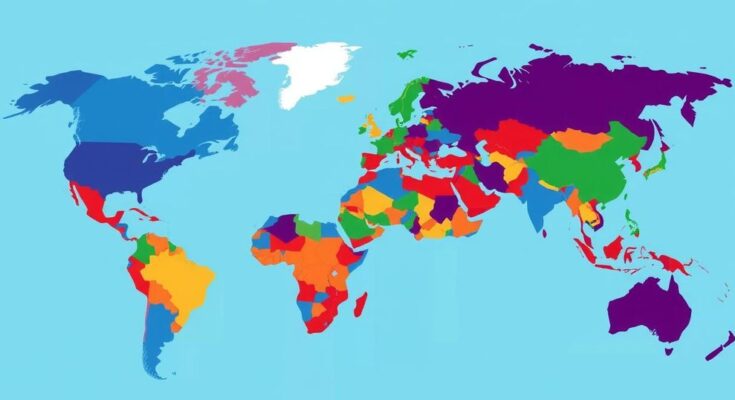The U.S. Department of State has issued Level 4 travel advisories for numerous countries, including Afghanistan and Venezuela, due to rising violence and instability. These advisories signal a significant risk to American tourists and necessitate informed decision-making regarding travel plans, especially amidst the upcoming spring break season.
The U.S. Department of State has recently heightened travel advisories for popular spring break destinations, including Russia, Jamaica, Colombia, and numerous others, designating many at Level 4 (“Do Not Travel”). This change is prompted by escalating concerns surrounding crime, political instability, gang violence, and terrorism, marking a shift in the perception of these once-favored tourist locales as spring break approaches.
Traditionally, these countries draw millions of American tourists due to their cultural appeal and idyllic landscapes. However, current advisories highlight a concerning rise in violent crime, kidnappings, and civil unrest, posing significant risks to both residents and visitors. These warnings compel the U.S. government to issue urgent safety recommendations.
The U.S. travel advisory system operates on a four-level scale, with Level 4 representing the most severe warning. This categorization is reserved for destinations where safety risks have escalated considerably due to conflict or extreme conditions. As of early 2025, several countries, including Afghanistan and the Democratic Republic of the Congo, fall under this strict advisory due to ongoing crises and security threats.
Afghanistan, plagued by violent conflict and a lack of emergency services, is deemed extremely dangerous for travelers. The U.S. advises against all travel to the region, citing high risks of kidnapping and violence. Similarly, the Democratic Republic of the Congo faces humanitarian challenges and violent threats from armed groups, necessitating extreme caution from potential travelers.
Lebanon’s political unrest, coupled with economic instability, greatly increases the risks for tourists. The country suffers from protests and a breakdown of governance, prompting the U.S. to advise against travel. The Central African Republic is similarly burdened by armed conflict and violence, leading to a complete travel ban for American citizens.
Belarus remains a high-risk destination due to political repression and potential harassment of travelers. Iraq continues to pose severe threats from ISIS and armed groups, creating dangers for visitors. The ongoing war in Ukraine also renders it unsafe due to active combat risks.
Venezuela faces an acute political and economic crisis, with a significant rise in violent crime and public unrest. Likewise, Haiti is beset by extreme gang violence and economic turmoil, necessitating advisories against travel. Iran remains tense, with risks of detention for travelers playing a role in its Level 4 designation.
The common characteristics of these countries under Level 4 advisories include ongoing violence and serious security concerns. The U.S. government urges travelers to closely monitor these situations, as current trends reflect increasing danger for Americans considering travel to these regions. Travelers should remain aware of the potential for violence and disregard for safety and follow recommended travel safety protocols.
The impact on the travel industry is substantial, as airlines and tour operators adjust offerings in response to these advisories. Increased demand for travel insurance that covers emergencies is also anticipated, reflecting travelers’ heightened awareness of potential risks. Ultimately, the advisories are crucial reminders of the importance of safety and informed planning as travelers prepare for their vacations.
As the spring break season approaches, American travelers must remain vigilant about the significant safety risks in popular destinations currently under Level 3 and Level 4 travel advisories. The U.S. Department of State’s warnings emphasize the importance of informed decision-making regarding travel security. The travel industry is expected to adapt in response to these advisories, reinforcing the need for travelers to proceed with caution and prioritize safety when planning their trips.
Original Source: www.travelandtourworld.com




